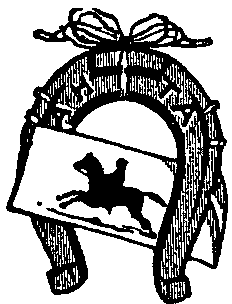
Anti-Horse Thief Association

Every year the suborders' presidents would appoint members to serve on pursuing committees, otherwise known as posses. If a theft or other crime occurred, the pursuing committee tracked the offender until his capture. In addition to pursuing committees, AHTA developed vigilance committees whose members kept suspicious persons under surveillance by watching their homes and sometimes following them. In order to obtain evidence, members would occasionally spend days watching the home of a certain thief, as well as a trail or river crossing suspected of being used by criminals.
One of the more notable manhunts involving AHTA members was the protracted search for outlaws Dick Yeager and Ike Black during the summer of 1895. Both were wanted for numerous offenses, including robbery. They had a knack for eluding the law. For two months posses of various deputy sheriffs, constables, and AHTA members pursued the duo over much of Oklahoma Territory and eventually fatally shot Black and mortally wounded Yeager.
In 1916 AHTA had over forty thousand members in Oklahoma, Kansas, Missouri,
Iowa, lllinois, Arkansas, New Mexico, Colorado, and South Dakota. By 1933 AHTA
members noted that thieves were stealing fewer horses and other stock but
observed that many other types of petty thefts were being committed with greater
regularity. As horses ceased to be the primary mode of transportation, the
organization changed its name to the Anti-Thief Association (ATA). In subsequent
years AHTA, and later ATA, became more of a social and fraternal group than an
arm of law enforcement. Most lodges held annual family picnics with planned
activities such as horse races, roping events, and other competitions.
Ritual of the Anti-Horse Thief Association
Ritual of the Ladies Auxiliary of the Anti-Thief
Association